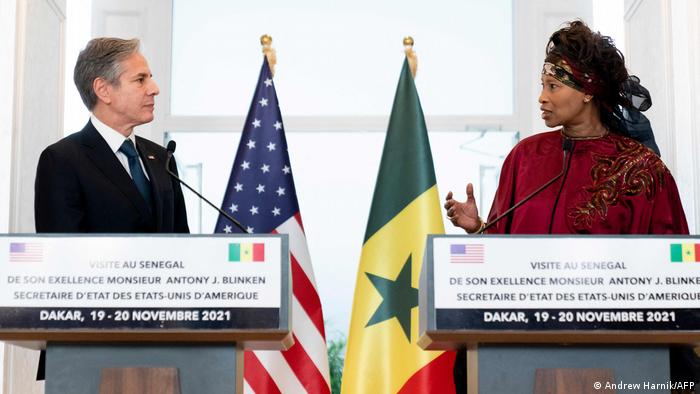Senegal has signed infrastructure deals worth $1 billion with U.S. companies, a sign that President Joe Biden’s administration plans to live up to its promise to recalibrate long-neglected relations with the continent.
America’s top diplomat Antony Blinken oversaw the signing ceremony on the second day of his visit to Senegal. According to a statement handed over by his office, the money will be spent on constructing a highway from the capital Dakar to St. Louis, improving trade corridors with neighboring countries and a nationwide communications network for emergency services.
While in Senegal, Blinked reassured the continent of America’s intent to revitalize relations as it seeks to topple China’s growing influence and “debt trap diplomacy.”
“The United States is committed to strengthening our partnerships across the continent in ways that serve the interests of people here — serve our own interests.
“We firmly believe that it is long past time to start treating African countries and institutions as the major geopolitical players that they’ve become.”
Senegalese Foreign Minister Aissata Tall Sall welcomed Blinken’s sentiments and stressed on the need for foreign powers to respect Africa’s sovereignty as they battle each other for supremacy.
“There isn’t a choice, there are only choices,” she said. “Africa is an opportunity.”
“Our diplomacy is about sovereignty and not excluding anyone. But also we have traditional friends and historic partnerships and we’re not throwing away the old ones for the new ones.”
Africa has always been near the bottom of America’s foreign relations priority list, mainly because the world’s poorest continent accounts for less than 2% of its total two-way trade. Relations seemingly reached a nadir during President Donald Trump’s era, with focus on the continent put primarily on North African states to establish relations with Israel as part of the Abraham Accords.
Nigerian President Muhammadu Buhari, Egyptian President Abdel Fattah el-Sisi and Kenyan President Uhuru Kenyatta were the only African leaders invited to visit the Whitehouse during Trump’s administration.
In June, U.S. President Biden launched his Build Back Better World, or B3W, plan with the goal of creating “a values-driven, high standard, and transparent infrastructure partnership” to help finance projects in developing countries. As part of the initiative, America announced it would invest in five to 10 large infrastructure projects in the world.
“The Build Back Better Initiative, the Clean Green Initiative of Great Britain, the Global Gateway and Clean Green initiatives are all part of a joint effort among the G-7 partners to deliver high-quality, sustainable infrastructure,” President Biden said at a roundtable COP26 side event in Glasgow, Scotland.
The groundwork for the initiative took off in earnest in October, when President Joe Biden’s Deputy National Security Advisor, Daleep Singh, identified at least 10 promising projects in Senegal and Ghana during the latest in a series of “listening tours”.
The G-6 B3W initiative is aimed at narrowing the $40 trillion in infrastructure investment that developing countries will need by 2035 and providing an alternative to Chinese borrowing practices that are widely seen as problematic. The United States will offer developing countries “the full range” of U.S. financial tools, including equity stakes, loan guarantees, political insurance, grants and technical expertise to focus on climate, health, digital technology and gender equality.
Blinken also visited the Institute Pasteur where he promised support to help Africans make their own vaccines. President Joe Biden has promised to donate more than one billion doses worldwide.
However, unlike China, America’s grand scheme for Africa will not just focus on investments but also support for democracy and state building. Senegal has long been one of the continent’s most stable nations with successful peaceful transitions to power, but deadly tensions flared up between President Macky Sall’s government and the opposition in March. Dozens of protestors were killed by police officers.
Days after the latest detention of an opposition leader, Blinken weighed in.
“Senegal has long served as a democratic model in sub-Saharan Africa,” he said.
“Like all democracies, the United States included, we can’t take for granted. Senegal can’t take for granted democratic norms and institutions,” he added.

